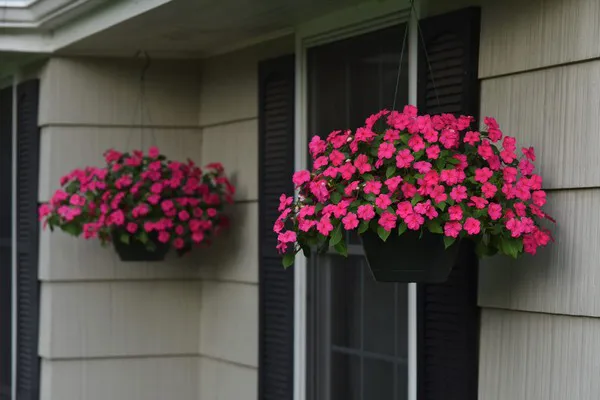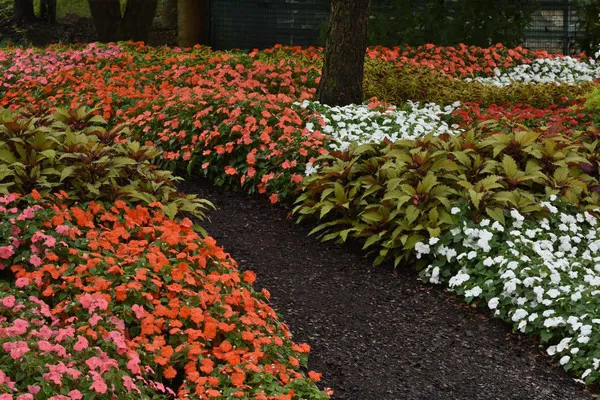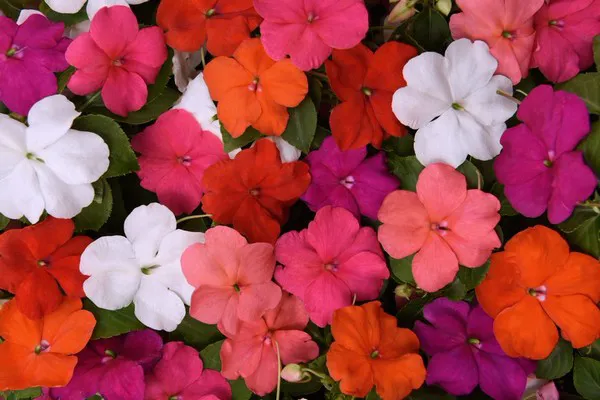“With the use of chemicals becoming more and more restricted, breeding resistant varieties is a great solution that offers a low risk option concerning diseases, as well as a more sustainable manner of growing plants.” An example is the Beacon series of PanAmerican Seed. This series is highly resistant to Impatiens downy mildew and in this article, Ruud Brinkkemper, Breeder Director Europe and General Manager who bred the Beacon variety, together with Diego Poot, Technical Support, explain more about the importance and increasing popularity of resistant varieties. 
“Important for everyone, from grower to consumer”
According to Brinkkemper, breeding the Beacon plants that have a high resistance to Impatiens downy mildew, is an important step for everyone, from the grower to the consumer. “Impatiens downy mildew is an incredibly destructive disease for the plant, as it will completely die when infected. In addition, the disease is highly contagious as it spreads through the air and infects other plants that are kilometers away.” As a result, everyone majorly benefits from having a highly resistant variety, especially now that more and more restrictions are being implemented on using chemicals. “It is not only important for the grower to not lose their plants to the disease, retail also does not want to have infected plants on their shelves, and the consumer notices that the plants last much longer in their gardens. For example, whereas it used to be common for the Impatiens to get infected and have died by August, consumers now notice that the resistant variety is still blooming beautifully in October.”
The returning popularity of the Impatiens
Brinkkemper explains that the destructive disease severely impacted the flower’s popularity. “About 20 years ago the Impatiens was one of the most important plants we sold. But ever since the downy mildew became a serious problem, about 10-15 years ago, it is difficult to convince everyone that we now have a variety that will not get ill. Yet the Beacon series is earning people’s trust, and we are definitely noticing a demand for the low-risk variety of the Impatiens.” This demand is evident internationally, Poot says. “We noticed that the Beacon series was accepted exceptionally well and quickly in the US. We also have growers in China who just started getting downy mildew issues, and they completely switched from their old varieties to the Beacon series, as they do not want to lose any more of their crops.”

Using less chemicals
Growers can maintain diseases by spraying fungicides over their crops, but there is a recent demand for a reduction in the use of such chemicals to increase sustainability. “For example, government reductions are being put in place to reduce the amount of available pesticides. As a result, it is becoming more of a challenge for growers to produce disease-free plants, which makes resistant varieties more and more important,” Poot says. Brinkkemper explains that consumers are also becoming more and more aware of the sustainability aspect and want to contribute by buying the resistant variety. “The recent awareness for sustainability among consumers has helped increase the popularity of the resistant variety as well. A resistant variety is a great solution towards growing a plant more sustainably, with a low need for chemicals but with the guarantee of it still remaining healthy and beautiful for much longer.”
Fighting both plant and human diseases
As they found the genetic solution for an important plant disease, PanAmerican Seed is committed to presenting a contribution in finding solutions for human diseases as well. Each year, they donate part of their revenue to a different small charity that does research on treating illnesses. “Conducting research is expensive. PanAmerican Seed invested a lot in our own research and we found a solution for this severe plant disease. We want to give back and contribute to research on human illnesses, so that we can come one step closer to those solutions as well.”
For more information about the Beacon series, go to www.beaconimpatiens.com.
For more information:
PanAmerican Seed
www.panamseed.com
